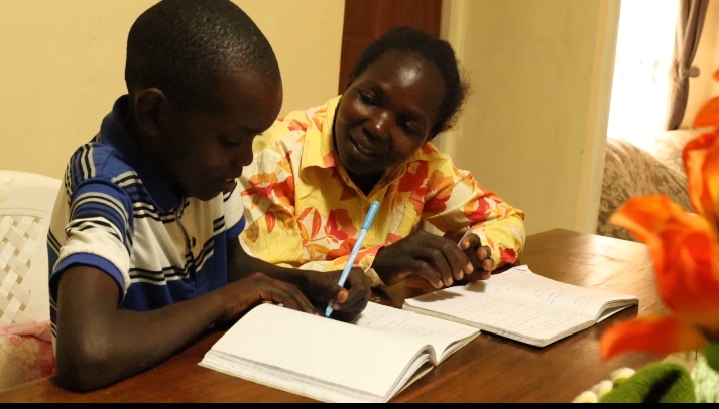World Teachers’ Day, celebrated every year on October 5th, traces its origin to 1994, when UNESCO, in collaboration with the International Labour Organisation (ILO), UNICEF and Education International (EI), established it to commemorate the 1966 ILO/UNESCO Recommendation concerning the Status of Teachers. This landmark document set international standards for the rights, responsibilities and working conditions of teachers worldwide. Since then, the day has grown into a global movement – not merely a celebration but a reflection on the vital role teachers play in shaping societies, nurturing young minds, and building the moral and intellectual fabric of nations.
It is also a reminder of the ethical and spiritual weight that accompanies the profession – a truth captured profoundly in the biblical warning: “Not many of you should become teachers, for you know that we who teach will be judged more strictly” (James 3:1).
This verse is both a caution and a call to humility. It reminds us that teaching, though noble, carries deep accountability before both man and God. The teacher stands as a mirror through which learners view life, morality and truth. Each lesson taught and each word spoken can build or break, guide or mislead. Therefore, while the world applauds teachers for their service, this day must also prompt self-examination within the profession – especially in light of the moral and ethical lapses that have occasionally tainted its image.
In Kenya and across the globe, disturbing reports have surfaced of teachers who have violated their duty of care – cases of caning, emotional abuse, molestation, and defilement. These acts not only break the law but also desecrate the sanctity of the teaching profession. They betray the very essence of the calling and inflict lasting scars on the lives of children entrusted to their care. Such behaviour calls for collective reflection: how did a profession rooted in love, patience, and moral guidance become associated, in some quarters, with pain and betrayal?
Teaching is not just about instruction; it is about inspiration. It is a sacred trust to nurture what is pure and innocent. Every child who walks into a classroom carries not only curiosity but also vulnerability. When that trust is broken – when a teacher harms instead of helps – the consequences extend beyond the victim. It shatters parental confidence, erodes the dignity of the profession and diminishes the moral authority teachers once held. The words of James 3:1 echo powerfully in such moments: those who misuse their influence will face harsher judgment, not only from earthly institutions but from the divine Judge who values every child’s soul.
READ ALSO:
Kericho hosts South Rift TVET Fair showcasing 179 innovations and skills excellence
The abolition of corporal punishment in Kenya in 2001 marked a shift toward a more humane and rights-based approach to discipline. Yet, some teachers still cling to the outdated belief that pain corrects behaviour. In truth, violence breeds fear, not respect. The modern educator must learn to discipline with empathy, to guide rather than punish, and to remember that authority without compassion is tyranny. The cane may silence a child, but it never reforms the heart. True discipline is born of understanding – teaching learners that actions have consequences while upholding their dignity.
Even more grievous are cases of sexual misconduct and defilement, which have occasionally emerged in schools. These are not mere ethical lapses; they are crimes against humanity and against the divine order. A teacher who exploits a child for selfish gratification desecrates the very altar of learning. They take what should be a sanctuary of safety and turn it into a place of trauma. For such acts, no justification or apology can suffice. These individuals not only deserve legal punishment but stand condemned by the moral laws that govern all humanity.
Yet, amid these dark stories, there shines a greater light – that of countless teachers who embody the true spirit of the profession. They work tirelessly, often in under-resourced schools, guiding learners with patience and love. They sacrifice personal comfort to ensure that their pupils have a chance at a better future. They correct with gentleness, advise with wisdom, and protect with courage. These are the true heroes of education – the silent servants who live out their faith through their work. For them, teaching is a ministry, not just a career. They understand that every child is sacred, every lesson is holy, and every act of kindness is a seed of eternity.
World Teachers’ Day should therefore not only be a day of honour but also a day of repentance and renewal. It should compel every teacher to examine their motives and methods, to cleanse the profession of moral decay and to recommit to the ethical standards that once made teaching a symbol of integrity. It is not enough to be knowledgeable; one must also be righteous. It is not enough to teach well; one must also live well. The best teachers are not those who produce high grades but those who inspire noble hearts.
This reflection also extends to society. Parents, communities, and policymakers must play their role in upholding the dignity of the teaching profession. Teachers should be supported through fair pay, proper training and mental health support. A frustrated or neglected teacher is more likely to stray from their purpose. Just as the Bible warns teachers of stricter judgment, it also calls society to honour those who labour in instruction, for theirs is the work of shaping nations.
As the world celebrates this day, let teachers remember that they hold in their hands the power to influence eternity. Every learner they touch becomes a reflection of their teaching – for better or worse. When they teach with integrity, they echo God’s own work of creation; when they harm, they destroy what is most divine in humanity – innocence.
Therefore, let this year’s World Teachers’ Day be a call to renewal. Let teachers everywhere rededicate themselves to truth, love and justice. Let every classroom become a sanctuary of safety and enlightenment. And let every teacher, before stepping into class, whisper a simple prayer: “May my words build, not break; may my actions heal, not harm; may my teaching honour both my learners and my God.” Amen.
For indeed, teachers will be judged more strictly – not to frighten them, but to remind them that theirs is a sacred calling. To teach is to touch eternity, to shape destinies and to stand as a co-worker with God in the formation of human souls.
By Ashford Kimani
Ashford teaches English and Literature in Gatundu North Sub-county and serves as Dean of Studies.
You can also follow our social media pages on Twitter: Education News KE and Facebook: Education News Newspaper for timely updates.
>>> Click here to stay up-to-date with trending regional stories
>>> Click here to read more informed opinions on the country’s education landscape
>>> Click here to stay ahead with the latest national news.






